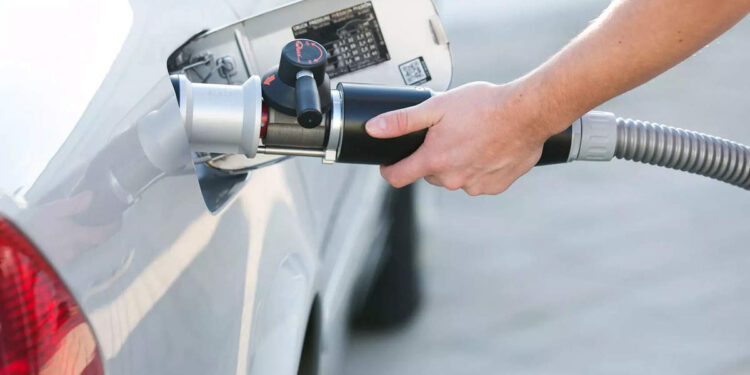
New Delhi: With policy regulations and consumer demand graduating towards green mobility, OEMs are experimenting with a mix of half a dozen fuel technologies and slowly moving away from the conventional fuels – petrol and diesel. Likewise, the demand is altering for component system suppliers.
Greenfuel Energy Solutions, a supplier of automotive components to OEMs for alternative fuel vehicles, is betting big on the increasing demand for CNG. With this, it has put aside an investment of about INR 24 crore to relocate its Gurugram-based operations to a bigger facility at Jhajjar, Haryana.
“We will be moving to a new 80,000 square feet facility for CNG components in Jhajjar. To be commissioned by October next year, it is 4X the size of the current facility in Manesar,” Akshay Kashyap, founder & CEO, Greenfuel Energy Solutions, told ETAuto.
Further, the company said it is in the final process of securing “some great projects with passenger car OEMs for CNG”, and looking to invest another INR 17.5 crore in the plant for these operations.
“The fresh investment will happen in phases. The first phase will see an investment of about INR 12 crore during June to December 2024, followed by INR 5.5 crore during January to March 2025,” he said.
Currently, the company has four manufacturing facilities. Two of these are for CNG systems, including a factory spread across 20,000 square feet at Manesar and another 30,000 square feet facility in Pithampur, Indore. Two other facilities for battery assembly and electronics manufacturing are also in Manesar.
One of the reasons for finalising on the new base for the CNG facilities in Haryana itself is its close proximity to its largest customer, Maruti Suzuki.
Greenfuel Energy is a supplier to Maruti Suzuki, VECV, Mahindra & Mahindra, and Tata Motors.
Established in 2006, Greenfuel claims to be the only supplier which is doing complete conversion from diesel to CNG in commercial vehicles. It supplies related parts like pipes, regulators, valves, among others as part of a vehicle’s CNG fuel system.
In August this year, ETAuto reported how the share of CNG- powered vehicles has gone up from about 3.5% of total passenger vehicle (PV) sales in CY 2019 to 11% in CY 2022, marking a growth of over 3X in three years. In 2019, the industry sold about 1.02 lakh CNG vehicles in the country, which has gone up by 310% to clock 4.21 lakh units in 2022. Experts suggest the trend is expected to continue.
To clock INR 300 crore in FY24
The Gurugram-based systems supplier is targeting to clock INR 300 crore revenue in FY 2023-24, growing from INR 220 crore recorded in FY 2022-23. The company expects about 80% contribution from its gas fuel business and 20% from battery division.
Greenfuel’s gas fuel division includes CNG and hydrogen as a fuel. Currently, it claims to have over 35% share in the CNG component market space.
By FY 2024-25, it expects to grow the revenue to INR 500 crore. By that time, it sees about 60% share from gas fuel and 40% from batteries, with demand primarily driven from electric three wheeler and battery swapping.
Kashyap estimates that till 2027, passenger vehicles (PVs) will drive the demand for CNG and 2027 onwards, its demand for commercial vehicles (CVs) is expected to hit the roof with BS-VII norms coming in place.
By 2030, it is targeting to clock INR 1000 crore in revenue. “CNG will play an important role especially with the new City Gas Distribution (CGD) licenses, which cover 72% of India’s geographical area and 90% of India’s population. By 2030, we expect a 5X growth in our revenue from CNG systems supplies,” Kashyap said.
In August this year, Greenfuel Energy partnered with Ventrex, a global leader in electronic pressure regulation for CNG, LNG, and H2, for the supply of advanced natural gas and green hydrogen solutions in India.
For the long term benefit of the industry, Kashyap believes that the government should keep a consistency in policy and rationalisation of tax structures.
Hydrogen biz to drive in fast lane in 5 years
While the core business remains in CNG, Greenfuel’s largest supply in the hydrogen segment is for Reliance Industries, followed by Ashok Leyland, Tata Motors, VECV and Electra.
“We expect the hydrogen business to drive in the fast lane in the next 5 years. This will be catalysed by the BS-VII emission norms, infrastructure expansion and government support towards green hydrogen,” Kashyap said, while adding that it will primarily be in large truck fleets.
Hydrogen-powered vehicles can be categorised into hydrogen fuel cell electric vehicles (FCEVs) and hydrogen internal combustion engines (H2 ICE). FCEVs generate electricity from hydrogen in a device called fuel cell that is used to power the electric motor, whereas H2 ICE burns hydrogen in an internal combustion engine.
In April, ETAuto reported how hydrogen ICE is being seen as the low hanging fruit to enhance life of ICE vehicles.
According to Kashyap, hydrogen ICE will be a preferred choice of fuel in the short to medium term until 2030, and then there will be a demand for fuel cells.
Going forward, the company aims to be an end-to-end solutions provider in hydrogen. Currently, it is supplying hydrogen sub-system equipment to be installed in the vehicles directly.
To introduce next-gen batteries in Q3 2024
Greenfuel started manufacturing lithium-ion batteries in 2016. Currently, it supplies the battery packs to electric two wheeler and electric three wheeler manufacturers, along with swapping solution companies.
The company said it manufactures batteries in-house with cells being sourced from China. It has obtained AIS-156 certification and its batteries are available in commonly used lithium-ion chemistries namely LFP (lithium ion phosphate) and NMC (nickel manganese cobalt). It is a supplier to Battery Smart, ChargeUp, and Sheru.
Greenfuel is looking to introduce an advanced version of its batteries, complying to stringent safety measures in Q3 CY 2024.
In terms of profitability, Kashyap is optimistic about the demand for energy storage systems (ESS) in the years to come. “ESS batteries are very promising, because lithium penetration in the energy storage market is very low compared to the lead acid market. With battery prices coming down, and the need for better, longer storage, this is going to give a big boost to the lithium-ion market in storage.”
Interestingly, the company is looking to separate its electronics division to create a new subsidiary by March 2024.
Leverage exports in African markets
With little share in the exports market, Greenfuel currently supplies CNG conversion kits for vehicles in Africa. Recently, it converted 20 public transport buses from diesel to CNG in Nigeria.
It is further “exploring good opportunities” in Northern Africa and a new market in Southeast Asia, primarily Indonesia, for CNG.
For the long term, it plans to export batteries as well, as it sees an opportunity to capitalise on China plus one strategy.
















